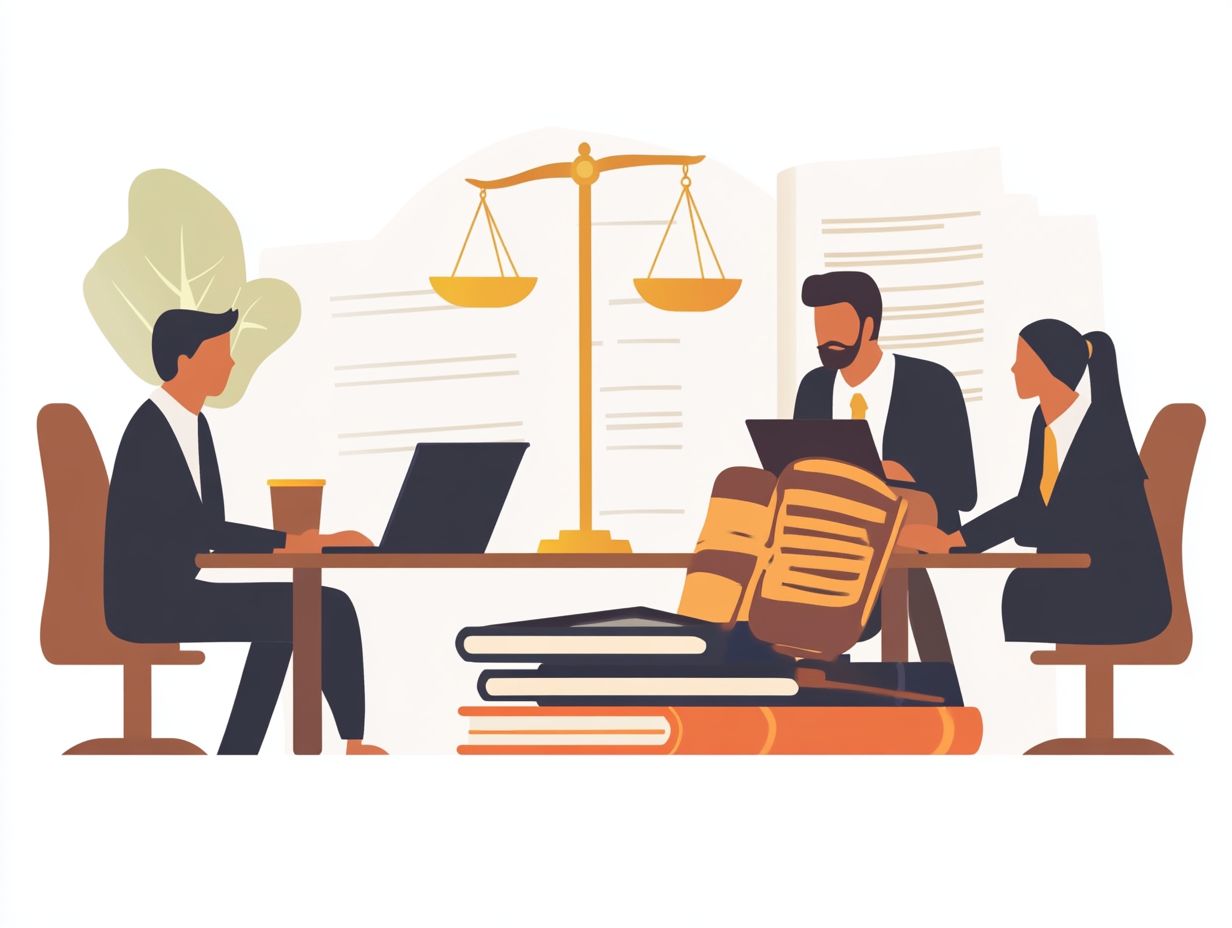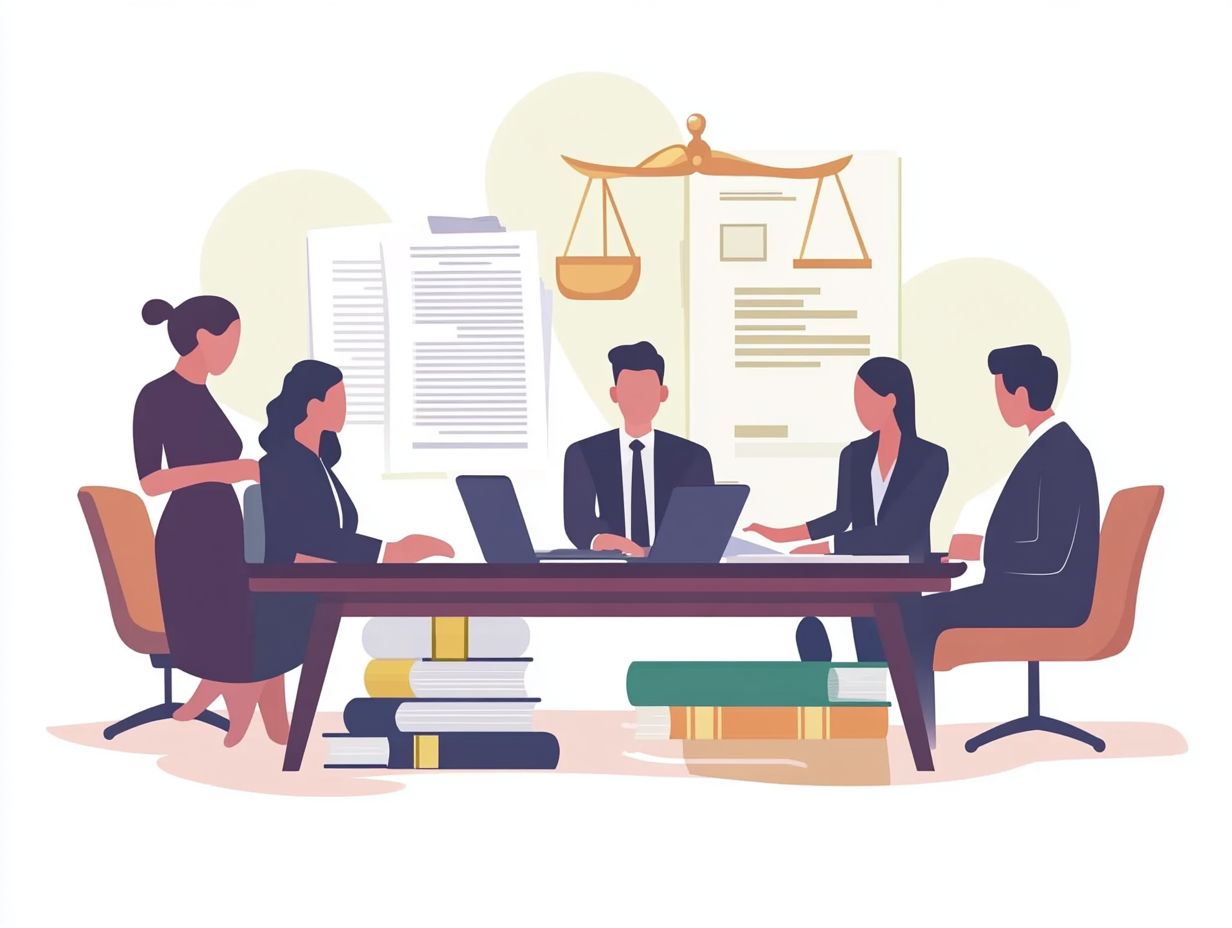What Are the Legal Resources Available?
Navigating the legal landscape can be daunting, but having the right resources at your fingertips can make all the difference.
This article unveils the various types of legal resources available to you, ranging from free to premium options, and highlights the distinction between online and offline tools.
It will guide you in finding credible resources, exploring common options like legal databases and aid services, and sharing tips for maximizing the benefits of these invaluable tools.
Whether you re a legal professional or someone in search of guidance, this overview will empower you to tackle your legal challenges with confidence and clarity.
Contents
Key Takeaways:

- Legal resources include various tools to assist with legal matters.
- Free legal resources are available online and offline, but evaluate their credibility.
- Common resources include legal databases, libraries, aid services, and clinics.
Overview of Legal Resources
The landscape of legal resources offers a rich array of tools and materials crucial for effective legal research. These span from online platforms to local law libraries.
In the United States, these resources cater to individuals navigating various legal needs, including family law, elder law, criminal matters, and civil actions.
You will encounter free databases, official court documents, and government data sources that grant access to statutory research and case law. This wealth of information opens the door to justice for everyone.
Types of Legal Resources
Legal resources come in various forms, primarily divided into free and paid options, each presenting distinct benefits for those in search of legal assistance.
Free resources, such as public law libraries and state legislative websites, provide essential information, including court documents and other legal materials. Furthermore, free resources are invaluable, especially if you lack the financial means to secure comprehensive legal support.
In contrast, paid services often grant you more extensive access, featuring detailed case law and digital copies of authoritative documents though these may require a membership plan or come with attorney fees.
Free vs Paid Resources
The distinction between free and paid resources in legal research profoundly affects your ability to navigate the intricate landscape of law.
Free legal resources, such as those found at local law libraries or through Kansas Legal Services, offer essential tools for grasping your legal rights and addressing issues like identity theft.
Paid resources typically provide more comprehensive access to sophisticated databases and legal research tools, usually accompanied by attorney fees. However, it’s also important to note that the content in these free tools may sometimes lack the depth needed for specific legal challenges, which can limit their effectiveness in complex cases.
On the flip side, paid resources like Westlaw and LexisNexis popular online legal research platforms offer detailed legal insights and extensive case law databases, vital for professionals or intricate legal disputes. Yet, the cost barrier can be a significant hurdle for many, raising important questions about the equitable distribution of legal services in society.
Online vs Offline Resources
The choice between online and offline legal resources can greatly affect how you find information. Online resources offer instant access to a vast array of legal databases, digital copies of court documents, and interactive forms.
In contrast, offline resources, like local law libraries, provide a traditional approach to legal research. They are often enriched by the guidance of experienced librarians and staff.
Each format has its advantages and challenges, catering to different needs. For instance, platforms like Westlaw and LexisNexis online databases that provide access to a wide range of legal information enable you to conduct quick searches across multiple jurisdictions without leaving home. This immediacy is invaluable, especially for busy professionals or those with mobility constraints.
Offline resources also help you engage more deeply with the material. By consulting casebooks, legal journals, and law treatises, you can enhance your understanding through contextual reading.
Finding the perfect mix of online and offline resources can transform your legal research journey!
Finding Legal Resources
Finding legal resources demands a strategic approach that spans multiple venues. Consider public law libraries, online platforms, and state legislative websites designed to meet your diverse legal needs.
If you re looking for legal assistance, resources like Kansas Legal Services provide invaluable support. They offer user-friendly online applications and a wealth of information.
These tools promote justice and help you navigate the legal system with confidence and clarity.
Where to Look for Legal Resources
When searching for legal resources, you have various options at your fingertips. Explore local law libraries, dive into online resources, or tap into free legal materials provided by nonprofit organizations and government data sources.
Legal Aid services, such as those from Kansas Legal Services, are essential hubs for anyone seeking guidance on legal matters. They help you find the information and assistance you need.
These institutions offer comprehensive legal literature and reference materials. They often provide access to trained professionals who can help you navigate the complex landscape of legal issues.
Online platforms like LegalZoom or Nolo are treasure troves of information tailored to your specific legal needs.
Meanwhile, government data sources such as PACER and local court websites enable access to case law, statutes, and necessary forms. Organizations like the American Bar Association ensure that both legal professionals and the general public can find valuable resources, making it easier for you to discover useful information for personal or professional purposes.
How to Evaluate the Credibility of Legal Resources
Evaluating the credibility of legal resources is crucial for ensuring the reliability and accuracy of the information you encounter, especially in intricate legal matters like consumer relations, identity theft, and civil actions.
Prioritize resources that offer authoritative versions of case law and legal advice from reputable organizations. Look for peer-reviewed materials, such as free journals and established online databases, to enhance your confidence in the content.
Consider materials that have earned endorsements from recognized legal experts or institutions, as these can be strong indicators of trustworthiness.
As you engage with legal content, cross-check information against multiple sources to see if findings are consistent across respected platforms. Stay vigilant about outdated materials, since laws and regulations can change frequently.
By applying these strategies, you can navigate the legal landscape with greater confidence, making informed decisions that align with your specific needs.
Common Legal Resources
Common legal resources are essential tools that you can leverage for a wide range of legal needs, from accessing comprehensive legal databases to obtaining legal aid and pro bono services.
Renowned organizations such as Kansas Legal Services and various legal clinics offer invaluable assistance and support, providing crucial information on family law, elder law, criminal matters, and civil actions.
They also maintain hotlines that provide immediate help, ensuring you have access to the guidance you need when it matters most.
Legal Databases and Libraries
Legal databases and libraries are key sources of information. They provide access to essential legal materials for research and case analysis.
These resources are often online and help you find important legal documents easily. They democratize legal knowledge, making sure everyone can access relevant information without hefty fees.
By facilitating thorough research, these tools empower you to make informed decisions and understand your rights, which is vital for promoting justice in society.
Continuously updated, these databases reflect the latest changes in laws and regulations, helping you stay informed about recent developments that could impact your cases or interests.
Legal Aid and Pro Bono Services

Legal Aid and pro bono services are game-changers, making legal help available to everyone. Organizations like Kansas Legal Services and various nonprofit entities are committed to providing you with free legal resources and support for a range of issues, from family law to identity theft and civil actions.
These organizations don t just address immediate legal concerns; they also enhance legal literacy within communities. Take, for example, the Legal Services Corporation (LSC), which plays a crucial role across the nation. It provides funding to local legal aid offices that serve the poor and marginalized, tackling issues that often include housing disputes, consumer protection, and immigration matters.
By facilitating your access to essential legal support, these organizations significantly contribute to reducing poverty and defending the legal rights of underserved populations. Ultimately, they help foster a more equitable society where everyone has the opportunity to seek and attain justice.
Legal Clinics and Hotlines
Legal clinics and hotlines provide you with immediate access to legal assistance and guidance when facing various challenges, such as consumer relations or identity theft. These resources equip you with valuable information and support, enabling you to navigate your legal rights and options efficiently.
Serving as a lifeline in precarious situations, these services help you grasp complex legal proceedings. For instance, community legal clinics like the Legal Aid Society offer free legal assistance to low-income residents, addressing issues ranging from housing disputes to family law.
Similarly, specialized hotlines, such as the National Domestic Violence Hotline, offer crisis support while connecting you with legal resources tailored to your specific needs. This ensures that everyone, regardless of socio-economic status, can access essential legal help precisely when it’s needed most.
Making the Most of Legal Resources
To navigate the legal landscape with confidence, you must harness the available legal resources by employing effective research and assistance strategies.
By actively seeking legal advice, preparing the necessary documents, and utilizing interactive forms, you can take charge of your legal needs today and navigate the system with confidence!
Tips for Using Legal Resources Effectively
To effectively use legal resources, adopt strategic approaches that enhance your understanding and application of legal information.
Consider seeking legal advice when necessary. Prepare documents with precision and use interactive forms. These strategies can significantly improve the efficiency of your legal processes and outcomes.
Conduct thorough research to familiarize yourself with the relevant laws and regulations that apply to your specific situation.
If you’re dealing with family law matters, you ll find it super helpful to consult online legal databases or attend free workshops offered by local legal aid organizations.
Staying organized can help streamline communication with legal professionals. This makes it easier to address complex issues as they arise.
Don t wait! Seeking help from qualified legal professionals can save you money and stress as you navigate the intricate legal landscape with greater confidence.
Frequently Asked Questions
What Are the Legal Resources Available?

Various legal resources are available to individuals, such as legal aid services, self-help legal materials, and online legal resources.
What services are provided by legal aid?
Legal aid is help provided to people who can’t afford a lawyer. Legal aid services offer free or low-cost legal assistance, advice, representation, and access to legal resources.
What types of self-help legal materials are available?
Self-help legal materials include guides, forms, and instructions for individuals to handle their legal matters without an attorney. You can find these resources in libraries, online, and in legal aid offices.
Are there online legal resources available?
Yes, various online legal resources are available, including legal websites, databases, and forums. These resources provide information, guidance on legal matters, and access to legal documents and forms.
Can I access legal resources through my local government?
Many local governments offer legal resources, such as legal aid services and self-help legal materials, for their residents. Contact your local government offices to inquire about the resources they provide.
Are there any restrictions on who can access legal resources?
In general, legal resources are available to anyone who needs them. However, some legal aid services may have income or case type restrictions, and certain online legal resources may require a subscription or payment for access.
Explore these resources today and take the first step towards handling your legal matters with confidence!






